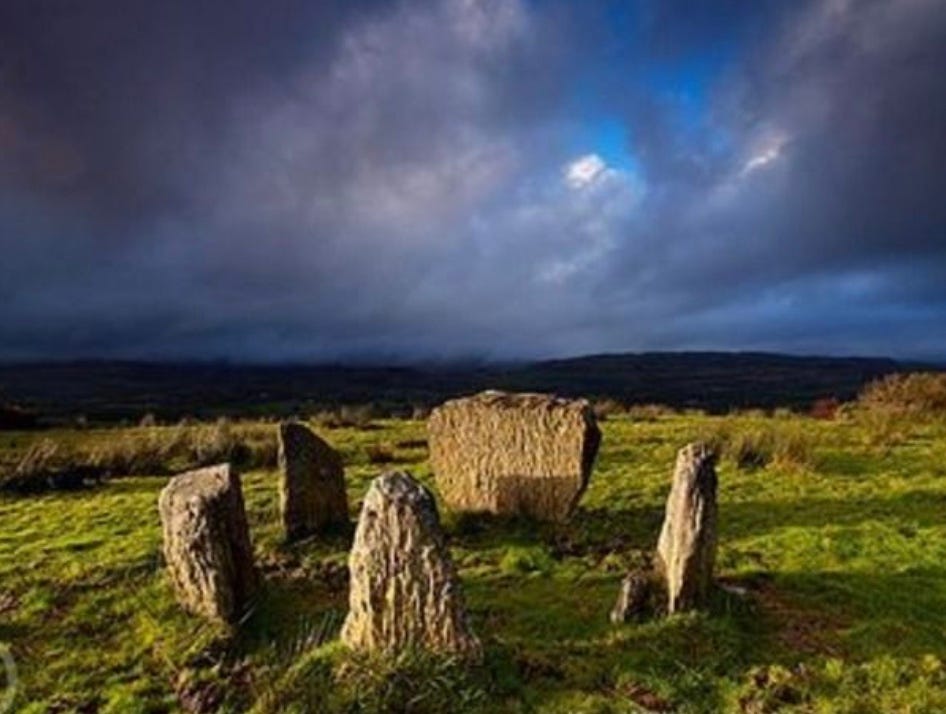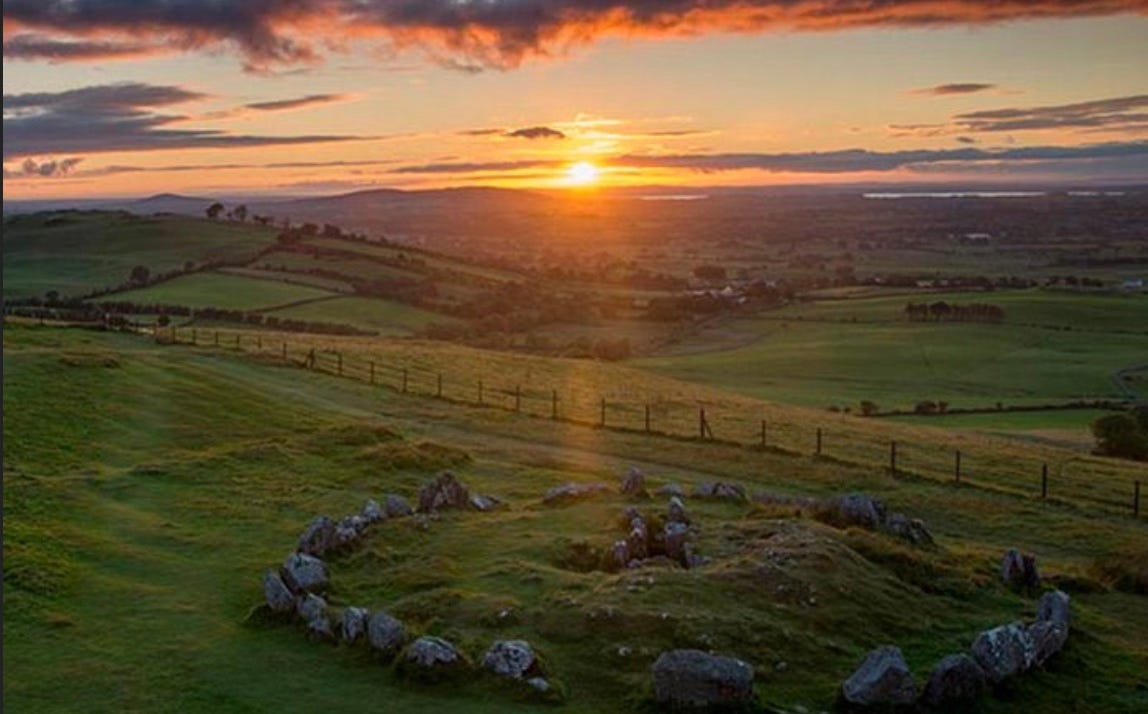While staring at the pavement in Dublin and walking briskly through the streets, you can be jolted out of your daydreaming by the sound of a group of tourists yelling. They pass at speed along the quays in an open-top bus of sorts, painted green, made to look like a ship, and hooked up to speakers that the driver speaks through. Their yell is boisterous, friendly, tourists enjoying a tourist moment, kind. They are part of the Viking Tour of Dublin.
Those pleasant Scandinavian neighbours from up north, came sailing down the coast and skipping through the fields of Ireland, raiding as they went. Of course, this was a long time ago, and there’s nobody today lamenting an ancestor lost to the Vikings or filing a complaint with some government body regarding the terribly distasteful practice and the gross insensitivity of letting a bus load of tourists re-enact a marauding band of Scandinavians charging through the streets of Dublin. That wound is dead and gone, buried, and let be. Not so in English.
Imagine it now: another open-top bus, this time decorated like a royal carriage, and up front an actor dressed as Oliver Cromwell waving his sword and directing the jolly tourists to yell at the Irish folk down below. We are a long way off from that tour. The bus would probably be overturned into the Liffey within 100 metres of starting. I think we can truly say Ireland has moved on when we are at ease with a similar English-themed tour passing along the Quays.
But who actually are the Irish? This nation of rich mythology but no creation story, this land that was landed upon by so many people, who mixed and copulated, built roads and the first towns. Are we the hunter-gatherers?, or the Celts who landed from abroad and influenced us with their art and culture? Or the Christian monks and scholars? the Vikings or the Normans? What influence did the English bring? Ireland, like many regions, has seen various waves of migration and settlement, and each group has contributed to the genetic and cultural makeup of the Irish people. We can’t deny that there is a unique Irish identity, but its richness comes from this tapestry of influences. It’s dynamic, not static.
I can spot an Irish person abroad from fifty paces away! What is it that I’m seeing? Are we in resonance with the shared collective memory of the Great Famine? Therein lies one important unifier: a collective narrative and historical continuity. The Famine happened to my people; it happened to your people. But what else? cultural expressions, for one. What Irish person abroad who happens upon a traditional Irish music session doesn’t feel instantly at home? I happened upon one in Flagstaff, Arizona, and we made it our duty to get drunk and conduct a non-negotiable céilí with every person in the place.
Céilí, that’s not an English word, for Ireland does have her own language. According to anthropologist Wade Davis, language is the backbone of a people. There is no doubt that by losing a language, as the Irish have come close to doing, a people lose something on a deep level. We know that story in Ireland. And yet the Irish language (Gaeilge) has also evolved significantly over centuries and been influenced by Latin, Norse, English, and other languages. Not everyone was a fan of the language. James Joyce had to leave Ireland to be able to write how and what we wanted.
“When the soul of a man is born in this country, there are nets flung at it to hold it back from flight. You talk to me about nationality, language, and religion. I shall try to fly by those nets.”
'A Portrait of an Artist as a Young Man'
Things are never simply black and white. At its core, life is complex. It takes time to grasp the mere surface of what is true. We can celebrate and preserve our heritage while giving wide berth to any constricted and dogmatic definitions of who we are. Imagine India, which wrestled itself from the clutches of English rule many years ago, yet would anybody convince an Indian today to throw off some of what remains of that rule? cricket, tea, and the railways! These things are as Indian as chapatis and spice.
We have a cultural identity in Ireland, one that must be preserved, but in a way that involves a commitment to inclusivity, education, and the celebration of cultural diversity.
I believe we should each have the freedom to define what our cultural identity is and how we go about connecting to and expressing that.
Take for example Ciaran. Ciaran was relaxing in his 4x4 along the hard shoulder of the N25 outside Waterford. Behind him was his little trailer with Wexford strawberries and potatoes for sale. I pulled up and wound down the window.
‘Howaye! Any new potatoes?” I asked
‘No’ says Ciaran, ‘No potatoes here, but I do have spuds."‘
Well, that’s what I love about Ireland. One hour down the road and I’m in a slightly different reality where the use of the word ‘potato’ instead of ‘spuds’ has marked me out as not being local and most probably from the Pale. Ask Ciaran what it means to him to be Irish? He’ll likely have a different answer than me.
Ah, but here’s the thing, the time of New Potatoes in Ireland is our equivalent to the first harvest of Champagne grapes in France. We’ve a simpler food culture here, but to cut open a fresh floury spud and douse it with good butter and enjoy it in the sun on a bright day in June, well, do that and nothing else, you can call yourself Irish.
Myself and Ciaran are in a agreement on that.
(If you sip a stout and read Seamus Heaney while you’re doing it, you’re hitting all the bases…..)
Beannachtaí
Ceiliúraigh do Chultúr







Loved reading that.
I’m off to cook the spuds now😃